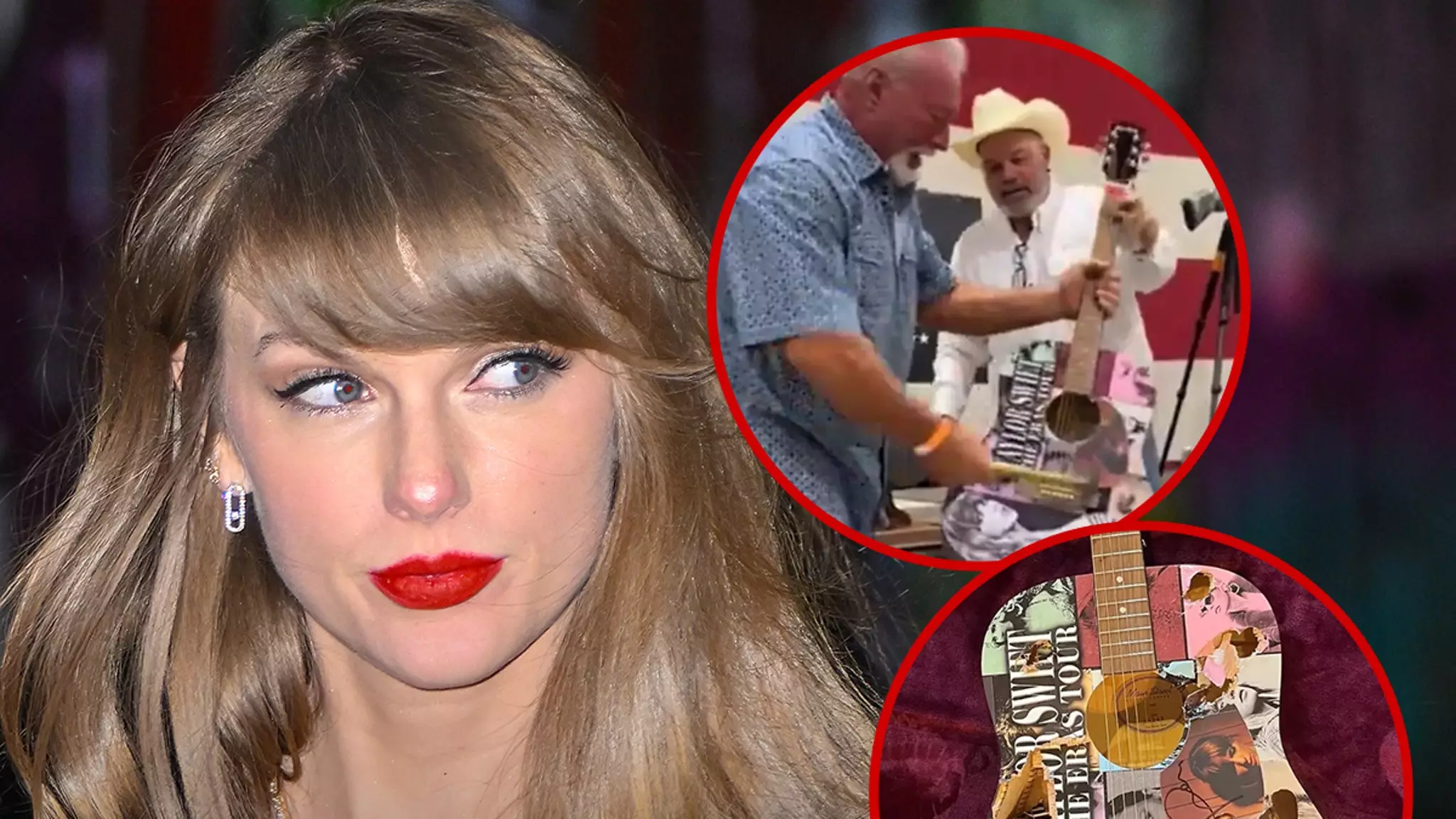The recent incident involving Gary Estes, who spent an extravagant $4,000 to destroy a guitar purportedly signed by Taylor Swift, has sparked widespread discussion and debate across social platforms. The 67-year-old grabbed headlines when he not only purchased the guitar during a charity auction in Waxahachie, Texas, but also smashed it with a hammer immediately afterwards. This shocking display, which he claims was merely a jest, brings into question the broader implications of celebrity culture, political affiliations, and personal expression.
Swift’s foray into politics has been a contentious topic, particularly among her fanbase and critics alike. Her public endorsements—particularly of Democratic candidates—have drawn backlash from some factions within the country, notably from her supporters who align with Republican views. In this case, Estes’ destruction of the guitar is a manifestation of a political statement; however, framing it solely as a “joke” diminishes its contextual weight and leads to misinterpretation by those outside the immediate audience.
The fallout from Estes’ actions has certainly been pronounced. Many have criticized him for his destructive act, interpreting it as a petty and spiteful action against an artist who has openly shared her political beliefs. While he insists that his intentions were not malicious—defending it as merely comedic in nature—the public perception tends to paint it as an aggressive form of dissent against Swift, who has utilized her platform for advocacy. This clash highlights a growing schism in celebrity culture—where artists are increasingly becoming targets of their audience’s political frustrations.
Auctioneer Craig Meier’s defense of Estes amplifies this debate. He refers to the act as a “light-hearted” event, suggesting that everyone involved was in on the joke. Yet, contextually significant is the distinction between humor and aggression; comedy can often be a veiled form of condemnation when steeped in political undertones. While many attendees may have laughed, the broader public reaction showcases a range of sentiments, from amusement to outrage. This demonstrates how subjective interpretations can lead to wider societal reflection.
Estes’ actions are not entirely unprecedented. There exists a pattern of conservative backlash towards celebrities who engage in political discourse. From burning memorabilia to boycotting artists, this zeal often results in a cycle of animosity between differing political factions. The guitar, which has since made its way to eBay, highlights the commodification of both art and dissent—a fleeting symbol of contempt transformed into a financial opportunity.
The situation invokes a profound commentary on the intersection of art, celebrity, and politics. As people like Estes take to such extremes to signal their disapproval, we are left contemplating the value placed on artistic expression versus political self-definition. By choosing to publicly destroy a piece of memorabilia, Estes not only signals his dissent against Swift but also, intentionally or not, perpetuates a culture where celebrity influence is met with disdain rather than discourse.
A Reflection on Future Actions
As public figures continue to shape and engage in political discussions, the response from their followers will also evolve. In a culture increasingly characterized by polarized views, Estes’ moment serves as a reminder that engagement—both positive and negative—will shape the discourse surrounding art and politics moving forward. Ultimately, the incident underlines the critical importance of understanding intentions, context, and the broader implications of seemingly isolated actions.

